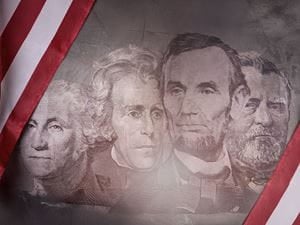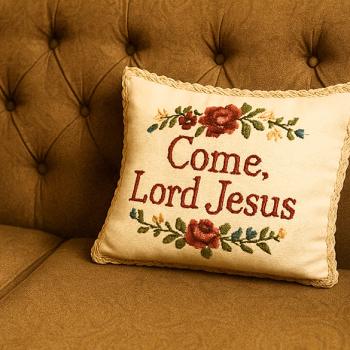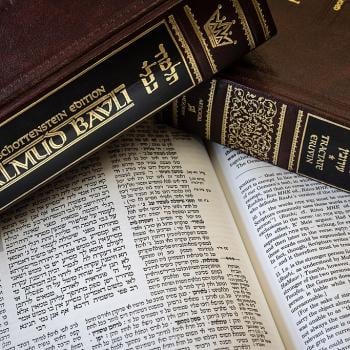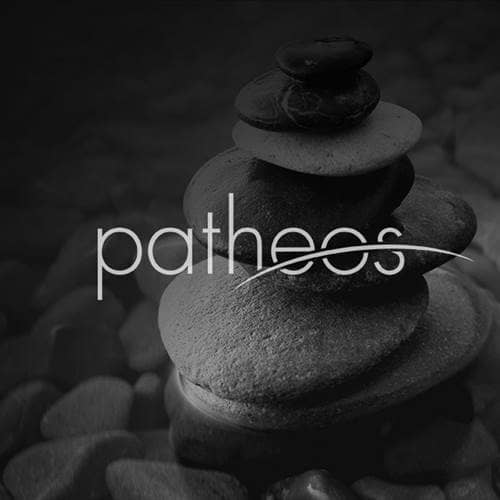
Owing to the state of U.S. politics in the 21st century, one might question using the words “religious” and “president of the United States” in the same sentence. Indeed, aren’t “religion and politics” the two things we’re told you should always steer clear of in any conversation? So, we very well may be committing a double taboo by discussing these two “forbidden” subjects in the same article.
Of course, the bulk of the “founding fathers” identified as some denomination of Protestantism and, to this day, the United States is largely Protestant—with nearly 50% of religious people in the country affiliating with some branch of Protestantism. (Less than 25% of Americans self-identify as Roman Catholic.) So, it should be no surprise that the vast majority U.S. presidents have been protestant. While some were less open about their denomination, if we rely on historians and biographers, we can say with a fairly high degree of certainty that the following is true:
- 11 U.S. presidents have been Anglican/Episcopalian
- 7 have been Presbyterian—though not all the same denomination of Presbyterianism
- 2 have been Dutch Reformed
- 1 was a Congregationalist
- 3 have been Methodist Episcopalian
- 1 has been United Methodist
- 4 have been Baptists
- 1 has been a member of Disciples of Christ
- 1 has been a member of the Churches of Christ
- 2 have been Quakers
- 4 have been Non-denominational Christians
- 4 have been Non-Trinitarian Unitarians (which is not the same as Unitarian-Universalism)
- 2 have been Roman Catholic
- 1 identified as Christian, but not affiliated with any one denomination or tradition
- 1 identified as having no religious tradition (Christian or otherwise)
Of course, belonging to a given religion or denomination doesn’t necessarily make one “religious” or “active” in a Church or faith group. Similarly, not regularly attending church while serving as president of the United States doesn’t make one irreligious. Ronald Reagan, for example, felt like his presence at church (while he was president) was disruptive to and dangerous for other attendees because of all the additional security it required. Thus, while he was personally religious, he was not a regular attender of church services during his eight years in office.
Here are a few presidents that, while serving, also attended church services with some frequency:
- Abraham Lincoln—Attended New York Avenue Presbyterian Church
- James Garfield—Attended National City Christian Church
- William McKinley—Attended the Methodist Church
- Theodore (Teddy) Roosevelt—Attended Grace Reformed Church
- William Howard Taft—Attended the All Souls Unitarian Church
- Calvin Coolidge—Attended two different First Congregational Churches
- Harry S Truman—Attended the First Baptist Church (on 16th Street)
- Dwight D. Eisenhower—Attended the New York Avenue Presbyterian Church
- Lyndon B. Johnson— Attended the National City Christian Church
- Jimmy Carter—Attended the First Baptist Church (on 16th Street)
- Bill Clinton—Attended Foundry Methodist Church (on 16th Street)
- Barack Obama—Mostly attended various Methodist churches (when he attended)
- Joe Biden—Attended various Catholic churches, but mostly one in Delaware
So, who was religious and who was not? Well, that’s a bit harder to state with any degree of certainty. Public persona can often be deceiving. We certainly know a few things about the practices and beliefs of the various presidents—and these might help us to draw some conclusions. Here are some of the most interesting facts:
Throughout their lives, and sometimes during their presidencies, many U.S. presidents attended denominations that they openly indicated they didn’t agree with theologically. Examples include John Adams, James Madison, John Quincy Adams, John Tyler, James K. Polk, Andrew Jackson, and Teddy Roosevelt.
- John Adams referred to himself as a “church going animal”—meaning he perceived himself as very religious.
- James Madison tried to keep his personal beliefs and religiosity out of the public eye, and historians say we know less about his personal religious beliefs than any other president of the United States. Donald Trump has likewise been pretty evasive about his personal beliefs.
- William McKinley was Methodist, and even planned (as a young man) to become a Methodist minister, which may explain why it is that he is the only U.S. president who used “exclusively Christian language in what is know as the presidential “Thanksgiving Day proclamation.”
- Having once said “I do not believe in the divinity of Christ,” President William Howard Taft was accused of being an atheist. Curiously, Taft—along with Thomas Jefferson and Abraham Lincoln—were each accused by their political opponents of being atheists, though those accusations were specifically raised during their campaigns for office. While it seems pretty certain that all three of these presidents were not officially “atheists” (two of which were likely Deists and one born a Unitarian), nevertheless, rumors swirled, and political slander was apparently alive and well from the earliest days of our Republic.
- Because he was a Quaker—and Quakers do not “swear oaths”—Herbert Hoover “affirmed” the oath of the office of the presidency, instead of “swearing” the oath. This goes to show the depth of his commitment to his faith and its teachings. Contrast that with Richard M. Nixon, who was the only other Quaker to hold the office of president, but who both “swore” the oath and also served in the military—each of which are against the teachings of Quakerism. Of course, based on the things which took place during Nixon’s presidency, few would call him the “most religious” or “moral” president in our history.
- Dwight D. Eisenhower might have the most diverse religious background of any president of the United States. His family had been Mennonite at one point. They became Jehovah’s Witnesses when he was 8 or 9. Both of those traditions forbid their members from joining the military, and yet Eisenhower’s career was in the military, where he achieved the rank of five-star general. Until he was inaugurated as president, he largely lived a religiously unaffiliated life—which he attributed to his long military career that required him to move constantly. Twelve days after his first inauguration, he was baptized in the Presbyterian Church—and attended that denomination during his presidency. (He is the only U.S. president to be baptized or confirmed while serving as president.) While holding the office, he began his Cabinet meetings with prayer, and he was instrumental in the adoption of the phrase “under God” into the Pledge of Allegiance. He was also instrumental in the placement of “In God We Trust” on U.S. currency.
- Like Eisenhower, Ronald Reagan had a rather diverse religious background. His father was Roman Catholic, and his mother was Disciples of Christ, and it was into the latter of these two traditions that Reagan was baptized and raised. However, in his early 50s, Reagan became a Presbyterian. Then, after leaving the office of the presidency, he called himself a “born-again Christian.” What’s curious about Reagan is that, according to one of his biographers, he had a “spiritual experience” long before he became president of the United States. In that “prophetic” experience (in October of 1970), Reagan believed God told him that he would eventually “reside at 1600 Pennsylvania Avenue.” Regam believed he would be instrumental in the brining down of communism, and he believed that becoming president was the only way to accomplish that. Thus, his pursuit of the presidency was rooted in his conviction that God had “called” him to impact the freedoms of those living under communist rule.
With all of that said, who is assumed to be the most religious and who the most irreligious of all U.S. Presidents? Well, it is important to set politics aside in making this decision. Many see those of the “other party” as the least religious, but those kinds of declarations tend to be based on politics, not facts. Also, it is much easier to make an assessment about the spirituality or religious engagement of a more recent president than it is for those who lived earlier in U.S. history—largely because recent presidents are better known, and we have good preservation of their words, demeanor, correspondence, journals, talks, and church attendance. So, any conclusions are necessarily tentative and subject to revision. Nonetheless, the breakdown of the “most” and “least” religious is usually something like this:
Most Religious
Though most Americans living today know little about William McKinley, he also ranks high on the list of the “most religious.” As noted previously, McKinley had planned on becoming a Methodist pastor. He lived a very clean and “righteous” lifestyle, not smoking, drinking, swearing, or engaging in other “inappropriate” or “sinful” behaviors. Even as president, he consistently attended Church, loved to vigorously sing hymns, and had a healthy prayer life. While we constantly hear the refrain “separation of Church and State,” President McKinley believed God had inspired the Republic as a means of spreading the truth of Christianity. He was religious to the core and is indisputably one of the most religious of men who have ever led this country as its president.
Jimmy Carter, on the other hand, is often described a “very Christian” and “extremely religious,” not so much because of his political persona, but because of the life he has lived—before and after his presidency. For example, it is well known that, after leaving the Whitehouse, Carter began teaching Sunday school at his Baptist congregation and did so for several decades (until his health would no longer allow him to do so). He also began working with Habitat for Humanity (after his tenure as president), participating in the building or renovating of more than 4,400 homes. The way Carter has lived his life has consistently been cited as evidence of his solid and consistent religiosity.
In Paul Kengor’s 2004 book, God and Ronald Reagan, it speaks of Ronald Reagan’s deep religious convictions—even though he avoided attending church during his presidency (to not inconvenience other worshippers). One of the pieces of evidence of Reagan’s deep religiosity was his constant insertion of references to God in his speeches—something that apparently drove speech writers crazy. Reagan is said to have once quipped to an angry writer (who had removed a reference to the divine from a Reagan speech) that since God had placed him in his position of power, he would not fail to acknowledge God, no matter how much pressure the writer put on him. Just based on the historical record of Reagan’s speeches, journals, personal correspondence, and his remarkable “spiritual experience” while governor of California (as described above), Reagan is unquestionably near the top of the list of “most religious” U.S. presidents.
George W. Bush is often perceived as one of the most religious presidents, largely because he was so open about his faith in God (during his time as governor and as president). However, that is largely based on his political persona rather than an observation of his personal life or faith practices. He is certainly a very religious man. However, could he be classified as the “most religious”? Not likely, though he would rank among some of the most.
Least Religious
Many of the founding fathers and early leaders of the country dabbled with or fully embraced Deism. Some Christians are uncomfortable labeling Deists as “religious” or “spiritual.” (Truly, Deists tend to be more cerebral about their beliefs and they certainly conventionally reject any sense of revelation or God’s involvement in the day-to-day lives of humankind.)
One of the most famous Deist presidents was Thomas Jefferson—and Jefferson is consistently ranked among the least religious of all U.S. presidents. Jefferson famously produced The Life and Morals of Jesus of Nazareth (commonly known as the “Jefferson Bible”). In his compilation, Jefferson removed any reference to the miraculous and supernatural. If a passage portrayed Jesus as divine, Jefferson removed it from his compilation—which has convinced many Christians that Jefferson was definitely not Christian, and may well have been irreligious. Though he typically tops the list of non-religious presidents, the fact of the matter is, Jefferson believed in a God. He simply didn’t accept that God intervened in the lives of humans once he had crated them. However, it is believed that Jefferson embraced the divine creation of the world and its residents. He simply was bothered by many doctrines professed by the Christianity of his day.
Many will be surprised to know that Abraham Lincoln has frequently been listed as one of the least religious presidents of the United States. This is less because his political opponents called him an “atheist” (though they did), and more because Lincoln expressed doubts about the divinity of Jesus, the existence of an afterlife or immortal soul, and did not believe in supernatural happenings like miracles or revelation. Like Jefferson, Lincoln had leanings toward Deism, but he was not a full-on Deist. Rather, he was a doubter who found the subjects of religion and faith complex and vexing. Thus, though he is held up for his great moral compass, many question whether he could be called “religious” in any true sense of the word.
Having denied the divinity of Jesus Christ, and choosing to formally not affiliate with any religion (Christian or otherwise), President William Howard Taft may well qualify as the “least religious” president of the Unites States, having been referred to as our “Unitarian atheist” president. Taft was drawn to the Unitarian acceptance of a sort of “humanist” lifestyle, but he had zero interest in theology, creeds, or scripture. Taft was himself dogmatic enough about this position to say to a friend that he would be okay being defeated in the election if it meant standing his ground on his humanist or Unitarian views of religion and Jesus. (Taft was Unitarian by birth, but it appears less by virtue of his personal “beliefs.”)
One survey claimed that 63% of Americans believe that Donald Trump is not religious. Respondents cite things like his unwillingness to share a “favorite” verse from the Bible (when requested to do so). While Trump has had some affiliation with various denominations of Christianity, Presbyterianism is the one he has had the most contact with. Nonetheless, he currently identifies as a Non-denominational Christian. Trump does not attend any church regularly and considers evangelical Paula White as his “personal pastor.” Trump has never claimed to be a non-believer or atheist, thus claims that he is irreligious may be based more on his persona and politics than his actual religiosity. (Indeed, Reuters pointed out that Trump talked significantly more about God during his first term than his immediately predecessors—Obama and Bush.) Nonetheless, Donald Trump often lists high in rankings of irreligious presidents.
Conclusion
Politicians are notoriously… well… “political” and, thus, what they present as their public image may or may not be “the real deal.” In the end, there is honestly no way to say what exactly is going on in the head or heart of another human being—and this is particularly true of presidents, who almost always have some agenda in what they say, do, or allow to be known. So, going simply on the historical record, we’ll probably never know for certain who was genuinely religious and who was faking it.
What we can probably say with some degree of confidence, however, is that the most outwardly religious president we’ve ever had was probably William McKinley, and the least religious was most likely William Howard Taft. If we’re wrong about this, well, then perhaps we’ll owe a couple of people an apology once we get to “the other side”!
5/16/2025 5:21:10 PM







